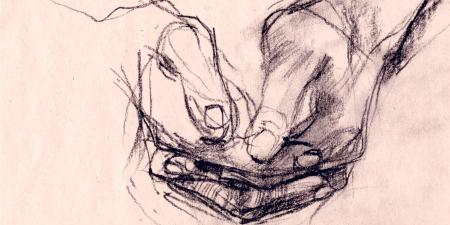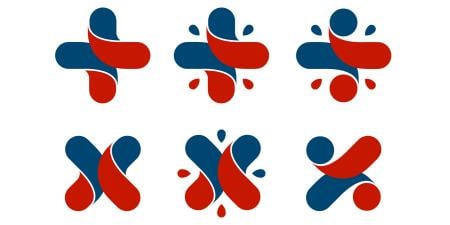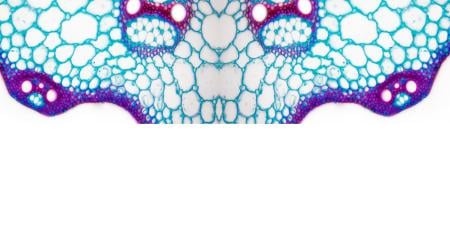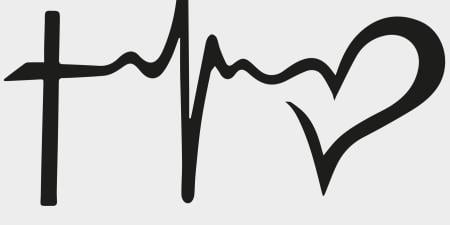Case
Mariana, 18, is 6 months pregnant with her first child. A routine screening ultrasound at 20 weeks demonstrated a constellation of severe fetal defects, including a structural brain anomaly, multiple heart defects, and an abdominal wall defect. Concerned about a possible genetic syndrome, Mariana's obstetrician, Dr. Wilson, scheduled an amniocentesis, which confirmed trisomy 13 (Patau syndrome). Dr. Wilson informed Mariana and her parents, with whom she lived, that the fetus had a severe genetic anomaly, and that the prognosis was poor. Eighty percent of affected infants die within the first month of life, only 5 percent survive the first 6 months. Those who survive past the first year have severe mental deficiency and seizures and fail to thrive.
The obstetrician offered the family 2 options: early induction of labor to terminate the pregnancy or term delivery of the child with palliative care after birth. She suggested the family think about these options for a few days, and return for a follow-up visit next week.
When they returned, Mariana's parents tearfully explained to Dr. Wilson that they were devout Catholics and that they weren't interested in terminating the pregnancy. After praying about the situation and consulting with their priest, they had decided that Mariana should carry the baby to term, and after delivery, they wanted to provide the best care possible to the infant. "At first, we weren't sure what to do, but after talking with our priest, we've decided that we want you to do everything you can to help our granddaughter live," they said. Dr. Wilson asked Mariana if she agreed with her parents, and she tearfully nodded yes.
At this point, Dr. Wilson explained to the family that, given the poor prognosis associated with Patau syndrome, she believed the best course of action was conservative management of the pregnancy, with no aggressive measures taken either in the peripartum period or in the neonatal intensive care unit. "For instance," she said, "given the child's multiple malformations, there is a high likelihood of fetal distress during delivery. But I can't in good conscience subject you to a caesarean-section delivery for a fetus that will probably not survive its first month." Dr. Wilson asked that they meet again in a few days, suggesting that a neonatologist also be a part of the discussion.
Three days later, the family came to the obstetrics clinic, now accompanied by their priest. Dr. Wilson asked Dr. Kim, the director of neonatal intensive care, To join the discussion. Dr. Kim emphasized the poor prognosis of the child's condition, but informed the family that he would be guided by their wishes.
The priest, Father Garcia, explained to both physicians that, as long as the baby was alive, he and the family believe that the best possible care should be provided, especially care that's considered routine for other children. "Trisomy or not, this is a child whose soul is made in the image of God," he says, "and to take the life of this innocent one—before, during, or after delivery—is unthinkable."
Commentary 2
Islamic medical ethics are based on the Quran, the holy book of Muslims; the Hadith, which are traditions of the Prophet Muhammad, peace be upon him; and clarifying opinions of Islamic scholars and jurists when needed.
Quranic View on Sanctity of Life
Islam upholds sanctity and protection of human life, which is clearly manifested in the Quranic verse "whoever kills a human being not in lieu of another human being nor because of mischief on earth, it is as if he has killed all mankind, and whoever saves the life of a human being, it is as if he has saved the life of all mankind."1 Muslims believe that God is the creator of life,2 and many Islamic jurists believe that life starts at conception. The Quran states, "We created man from a quintessence (of clay). Then we placed him as (a drop) sperm in a place of rest firmly fixed. Then we made the sperm into a clot of congealed blood. Then out of the clot we made a lump. Then we made out of the lump, bones, clothed the bones with flesh. Then we developed out of it another creature. So blessed be Allah (God) the best creator."3
While most Islamic scholars and jurists believe that life starts at conception, some believe that the intrauterine life is divided into 2 stages. The first stage occurs as plant life, when growth and nourishment take place. The second stage occurs as human life, which is introduced into the fetus when the spirit is breathed into it.4 This view is supported by the Hadith, narrated by the Islamic scholar Ibn Masud. "The creation of each one of you is brought into the belly of his mother for 40 days, then for a similar period he is a germ cell, then for another 40 days he is an embryonic lump, then an angel is sent to him and ordered to write down his career, his livelihood, his life's duration, whether he is to be miserable or happy, and the angel breathes spirit into him."4 This "breathing of spirit" is interpreted as the beginning of human life. This is said to occur at 120 days after conception, according to Islamic scholar Ibn al-Qayyim al-Jawziyah.5
Abortion is not permissible in Islam, unless to save a mother's life as set forth by Islamic teachings and scholars. The Quran is clear on abortion or infanticide in its verse "kill not your children for fear of want, we will provide sustenance for them as well as for you, verily killing of them is a great sin."6
Recent Developments in Islamic Medical Ethics
The majority of Islamic scholars believe that the only indication for termination of pregnancy is a danger to the mother's life, and, even in those cases, termination needs to occur before 120 days. In some rare cases when a mother's life is in serious danger, termination can occur at any time, even if after 120 days. In Islamic Shariah (Islamic Law), termination of pregnancy to save a mother's life is accepting the lesser of 2 harms.
The medical ethics committee of the Islamic Medical Association of North America (IMANA), of which I am a member, has recently composed position papers on Islamic medical ethics wherein it is stated that "abortion may be permitted if continuation of pregnancy may cause the pregnant woman to die or cause serious deterioration of her health, both medical (physical) and mental."7
In this case of trisomy 13, diagnosed at 20 weeks of gestation, despite poor chances of survival, poor prognosis for life and functions, I agree that the pregnancy needs to continue with the best appropriate care both for the mother and the baby. There is no question of termination because there is no danger or harm to the mother's life by continuation of pregnancy. Moreover the pregnancy has advanced to 20 weeks, when the baby is endowed with life and soul. Prior to 120 days, termination would have been considered for a valid reason if it had affected the mother's life.
Prayers and faith in the will of God empowers a Muslim patient to accept any illness, for everything occurs with the knowledge of God and there is always wisdom in his creation. Muslims also believe that the rewards are greater for caring for a child born with serious health problems.
With regard to the care of a newborn with multiple life-threatening congenital anomalies such as trisomy 13 or Patau syndrome, it's preferable to provide the care available and let the baby take the natural course if symptoms worsen despite the medical care. Parents of severely handicapped children are best able to make appropriate decisions for them when given not only good medical care but also support by medical experts who are truly conscious of parental religious beliefs and values.8 There are many medical and ethical dilemmas in the management of a severely handicapped baby. The optimum management can be achieved not only with the best medical technology and treatment but also with significant awareness of parental religious beliefs and values in caring for the patient and the family.
References
-
Quran 5:32. Ali, Abdullah Yusuf. The Meaning of the Holy Quran. 10th ed, reprint. Brentwood, Md: Amana Publications; 1996. All references to the Holy Quran refer to this edition. The notation Quran (5:32) means chapter 5, verse 32, and this is the same in any version of the holy Quran.
-
Quran 36:77.
-
Quran 23:12-14.
-
Fadel EH. Antenatal diagnosis of fetal malformations: achievements, pitfalls, and dilemmas. The Journal of Islamic Medical Association of North America. 1998;30:99-101.
-
Yaseen, MN. The inception of human life in the light of statements of the Holy Quran and Sunnah and the opinions of Muslim scholars. Journal of Islamic Medical Association of North America.1990;22:159-166.
-
Quran 17:31.
-
Islamic Medical Association of North America (IMANA). Position Papers on Islamic Medical Ethics. In press.
-
2018;
Haque M. Case presentation of Ellis-van Creveld Syndrome and the dilemmas and implications of prenatal diagnosis and management of a congenitally malformed baby. The Journal of Islamic Medical Association of North America. 1998;30:113-115.



